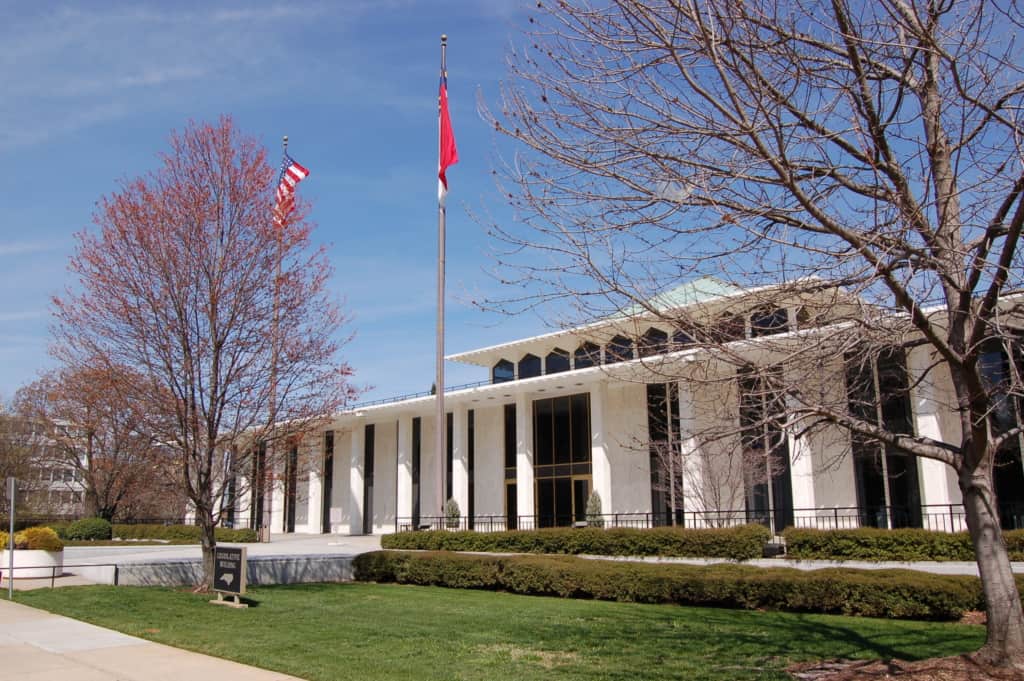
The General Assembly reconvened this week to kick off the legislative session, and my colleagues at EducationNC provided an in-depth look at what to expect for early learning, K-12 education, and community college policy. Here are some of the key takeaways from their reporting.
New order
For the first time since EducationNC began covering the General Assembly in 2015, Republicans no longer have a super-majority in the House or Senate. Previously, Democratic Governor Roy Cooper and legislative Democrats had little bargaining power, as legislative Republicans could override the Governor’s veto with a super-majority.
Now, Republicans will have to get some Democrats on their side if they want to override the governor’s veto. This should produce more negotiations between the General Assembly and the governor’s office and between legislative Democrats and Republicans.
For more on this new order, click here.
Early learning
As my colleague Liz Bell writes, not many issues have as much bipartisan support as early childhood education — especially when it comes to literacy. With so many groups focused on early childhood education and development, this long session of the General Assembly is likely to bring more attention to early childhood issues and policies. Here are a few of the factors at play.
- Expansion of NC Pre-K: Recently, a group of business leaders leaders released a report by the National Institute for Early Education Research (NIEER) and held a press conference to push for more NC Pre-K funding and reveal ways in which the current funding structure is failing to serve 53 percent of eligible children, or 32,778 4-year-olds. The business group had several recommendations for rethinking the program’s funding structure to serve more children, and three main legislative asks for this session: maintain or increase NC Pre-K funds, shift the focus from waitlists to serving 75 percent of eligible children, and undergo an analysis of NIEER’s recommendations on changes to NC Pre-K funding. More on this effort can be found here.
- B-3 Interagency Council recommendations: Created by the General Assembly in 2017, the B-3 Interagency Council is a 12-person body tasked with imagining a unified system for children between birth and third grade. Its members are discussing potential policies to require kindergarten transition plans for districts, study the early childhood data landscape, and look at licensure requirements for early childhood educators. The council must submit a report outlining the progress they have made in creating a coordinated system by Feb. 15, 2019. For more on the council’s work, click here.
- Early Childhood Action Plan: The Department of Health and Human Services is in the revising process of a statewide Early Childhood Action Plan in response to an executive order from Gov. Cooper last summer. The draft was released in November and the final plan will be launched in February. The draft plan is broken down into 10 goals, each with their own target and annual metrics. To learn more and view the draft plan, click here.
- Pathways to Grade Level Reading: The N.C. Early Childhood Foundation‘s Pathways to Grade Level Reading initiative has worked in cross-sector groups to identify what measures impact third-grade reading proficiency, where to focus and take action first, and what to do. That third piece, what specific actions to take to improve reading proficiency, will be answered in the Pathways to Grade-Level Reading Action Framework, which is yet to be released. For an outline of that framework, click here.
- Think Babies NC: Think Babies NC, an initiative focusing on infant and toddler needs across the state, has aligned its mission with the Pathways work as well. Led by the NC Early Education Coalition, Think Babies NC recently outlined the organization’s top issues, some of which may be addressed by the legislature. The issues are divided into three main categories: healthy beginnings, supported families, and early care and education. Its first priority: the 2020 census count. For more on this, click here.
K-12
The budget
Back in 2017, the General Assembly passed its last two-year budget. That included $9,046,403,622 for the Department of Public Instruction in 2017 and $9,425,109,426 in 2018. In the short session last year, lawmakers added an additional $167,847,276 for 2018 for the Department of Public Instruction.
During budget proceedings this long session, there are a few factors at play that could impact how public schools are funded. The Joint Legislative Task Force on School Finance Reform has a report due this year on how to possibly revamp how schools are funded. Meanwhile, the Governor’s Commission on Access to Sound Basic Education is expected to release a report on strategies to meet the Leandro requirements set out by the court in a 2002 ruling.
Other budget-related policies that are likely to come up during this session include:
- Teacher pay: All indicators are that teacher pay raises will continue during this long session, though they may be less substantial than those passed in the 2017 long session budget.
- Principal pay: The state’s principal pay schedule was revamped and principal salaries were increased in the 2017 long session. However, the hold harmless provision that locked in some principals’ salaries at previous levels has been criticized. Although the provision was addressed in 2018, it continues to be an issue. Further increases to principal pay will also likely be addressed.
- School safety: The House Select Committee on School Safety approved its report to the General Assembly in December, asking for an expansion of the school safety grants from the short session, among other things. Those grants included money for school support personnel, such as nurses and counselors. Increased funding for school support personnel will likely be addressed this session.
- Advanced teaching roles: These are roles that provide a path to advancement for teachers without them having to leave the profession to become administrators. The General Assembly funded grants to pilot advanced teaching roles in 2017, and the State Board recently approved additional grants for further pilots. Expanded funding for these roles will likely be addressed this session.
Non-budget issues
- School infrastructure: House Speaker Tim Moore, R-Cleveland, sent out a press release before the holidays signaling his intention to file a bond bill to go before voters that would include $1.9 billion for education construction needs. That would include $1.3 billion for K-12 capital construction and $300 million each for the UNC System and for North Carolina community colleges. During a stop on a statewide tour to discuss the bond this month, Moore changed the details of the bond slightly, saying that it would include about $1.5 billion for new K-12 schools and about $200 million each for the UNC System and Community College System. This week, Senate Republicans countered Moore’s plan with a proposal for Senate Bill 5, Building North Carolina’s Future, which would use money from the State Capital and Infrastructure Fund to raise more than $2 billion over nine years for K-12 school construction and maintenance.
- Low-performing schools: One issue related to low-performing schools is what defines them. Currently, a low-performing school is one with a D or F that doesn’t meet growth. That definition could be up for debate this session, along with the formula by which School Performance Grades are calculated.
- Calendar flexibility: Many different organizations are advocating for calendar flexibility, a topic made all the more urgent by the large number of school days missed this year due to hurricane damage.
- School choice: School choice in North Carolina continues to grow, with new charter schools opening every year and the expansion of opportunity scholarship programs for low-income students and students with disabilities. This session could see discussion on expanding the amount of money granted to low-income families by the opportunity scholarship program and discussion on the way charter schools are funded, among other things.
For a full legislative preview of non-budget education policy issues from my colleague Alex Granados, click here.
Community colleges
In the last long session budget, the General Assembly appropriated almost $6.4 million recurring and a little more than $8 million nonrecurring in increased funding to short-term continuing education and workforce development for the community college system. These funds are aimed at instruction and training that leads to industry credentials.
This will continue to be a big issue in this year’s long session. The community college system, along with the NC Association of Community College Presidents and the NC Association of Community College Trustees, released their legislative agenda which has $11.5 million to “complete funding for short-term workforce training programs that lead to state-or industry-recognized credentials” at the top.
According to Peter Hans, community college system president, workforce training has traditionally only been funded at two-thirds the level of traditional academic training. This increase in funding would put the two on par, allowing more North Carolinians to gain workforce skills and fill open positions.
Other legislative priorities for the community college system include increases to faculty salaries and simplifying the residency determination process for students.
The State Board of Community Colleges also approved a list of legislative priorities that it will share in common with the UNC System, something being done for the first time this year. These priorities are:
- Summer scholarships for UNC and NCCCS students
- Transfer student scholarships
- Improve credit transfer for community college and military-affiliated students
- Expand the availability of Open Educational Resources (OER)
For the full legislative preview of community college policy issues from my colleague Alex Granados, click here.
What are your education priorities?
EducationNC and Reach NC Voices will launch the People’s Session, a project designed to surface your education agenda for 2019. You will have the chance to weigh in on policy statements and submit your own. Sign up below to participate once the project is live.


